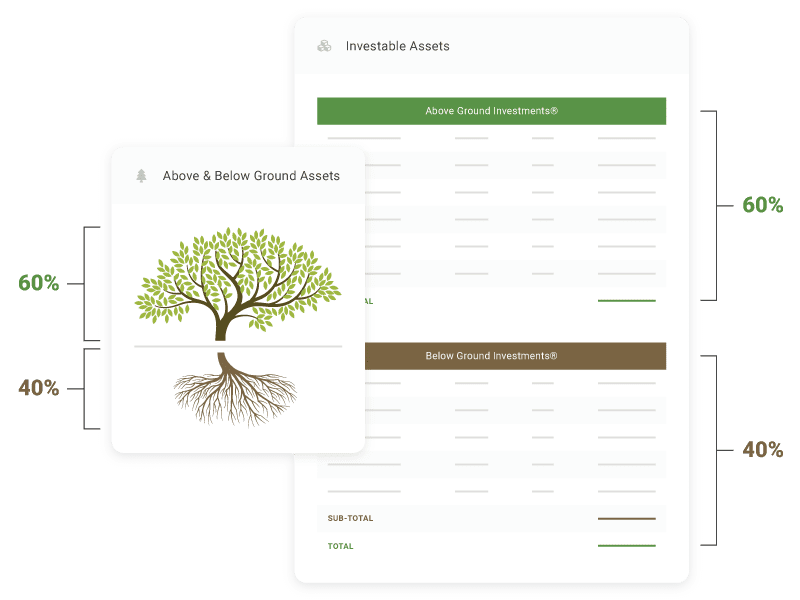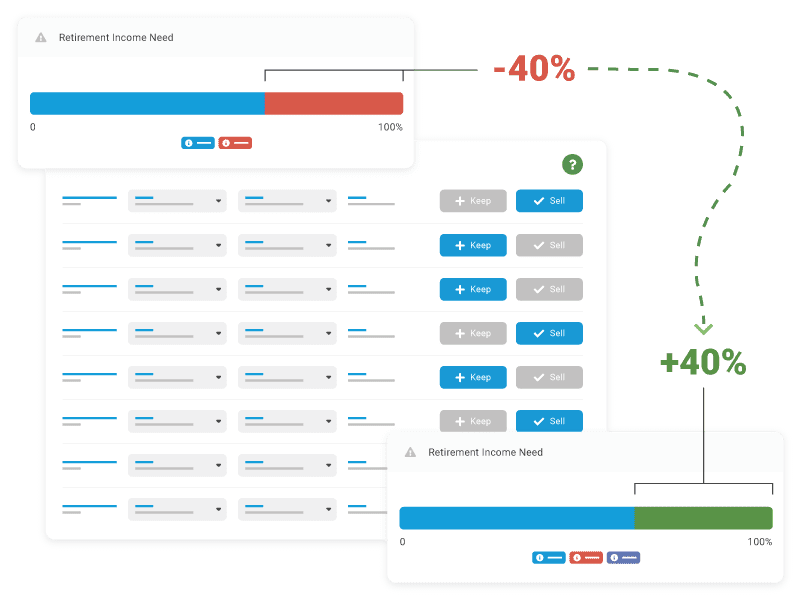How are you supposed to manage wealth effectively when the economy is doing one thing, while your monthly income does another? There are many different aspects to the financial well-being of a household or business. Similar to a visit to the doctor, a physician would not focus on a single area and ignore the health of other parts of the body, the same is true for your financial fitness. Being financially healthy requires a multi-tiered approach with a certified financial advisor or wealth management advisor. One study, Capital One Mind Over Money, showed that many of the respondents—77%, in fact—felt anxiety about their finances. So you’re not alone if you have concerns. And while there may never be a “perfect” time to improve your financial literacy and understand wealth management opportunities, there are steps you can take to improve your personal wealth at any given time.
If you’re looking for ways to manage your wealth effectively, we have you covered. Here are a few of our tips to ensure you’re managing, protecting, and growing your wealth effectively.
Set Wealth Management Goals
Defining clear and realistic goals is often the most important step in wealth management. Your targets are the foundation upon which your financial plan will be built and will assist you in staying on track as you strive to reach them. That said, be careful not to mistake your goals for a plan. You may wish to retire with a $2M portfolio, but defining the goal isn’t enough; you’ll need an effective plan to get there.
Control Your Spending
We’re living in a time where credit affords us the ability to be impulsive and make unnecessary purchases. A new cell phone when the one you’re using works perfectly fine, a new car to impress the neighbors, or vacations so we can post photos to social media. While temporarily satisfying, these expenditures add up quickly. They also reduce the amount allocated to savings, insurance, assets, and investments. When you control your spending you help to increase your total wealth not only by increasing your savings but by controlling your debt as well.
Be Strategic
It’s no secret that today’s economic climate is rapidly changing. While you may find yourself feeling helpless in the face of rising prices, adopting a strategic approach can help mitigate the effects of inflation on your finances. For example, gas prices are having a significant impact on costs for businesses and households alike. Try focusing on what is inflating the most (gas, groceries, etc.) and shopping for the best prices. However, minimizing consumption, shopping for better prices, or taking advantage of cash-back opportunities can drastically improve your savings on this commodity and others. There are many additional ways to minimize the impact of inflation on your spending, which you can find here. You can also take a moment to read our article How to Account for Inflation During Retirement Planning.
Prepare For the Unexpected
Ensuring you are prepared for all contingencies not only offers peace of mind but also increases the survivability of your savings or assets in case of an emergency. Preparedness is a very broad category that encompasses life insurance, making sure that you have savings equivalent to six months’ worth of expenses, tax planning, a last will and testament, and trusts. These are areas that may not be intuitive to the average individual, but they shouldn’t be ignored because of their complexity. Consider asking your wealth advisor about what wealth management strategies work best for your situation.
Ask A Professional
The holistic strategy required for effective wealth management can be sufficiently elaborate. Many novice investors find it overwhelming. What’s more, tracking market movements and staying up to speed on tax and financial regulations can be extremely time-consuming. Even highly educated investors may miss important pitfalls or opportunities. Therefore, it’s important to seek the help of a trusted and qualified professional to assist in developing a plan, managing your wealth, and advising you on the latest strategies to keep you on track towards your goals.
Summary
Although we’re in a period of economic change, there are steps you can take to maximize opportunities and minimize the impact of inflation or market fluctuations. While some of these steps will require personal discipline, it’s important to seek help to make sure that your wealth management strategies are sound. If you’d like to learn more about how you can effectively manage your wealth, contact one of our wealth advisors today for a free consultation.
Looking to learn more about Wealth Management? Find the list of Kaizen Wealth’s services here.



